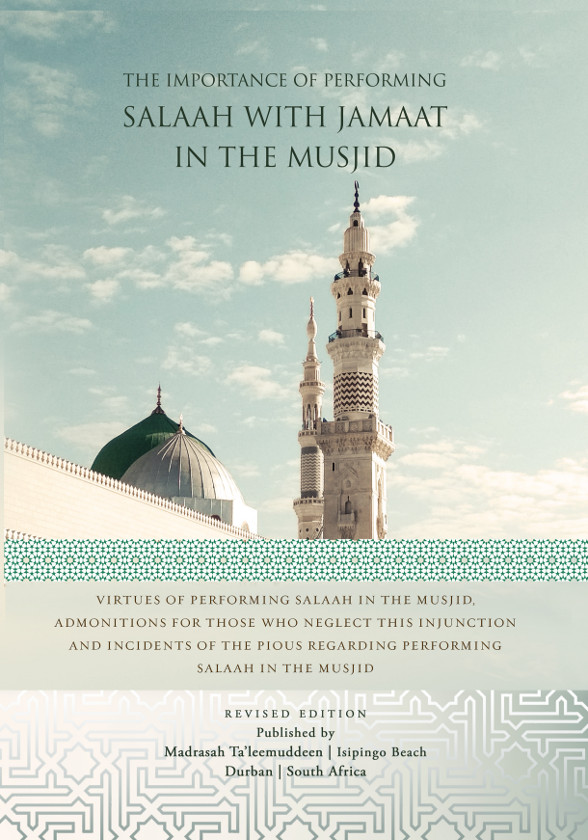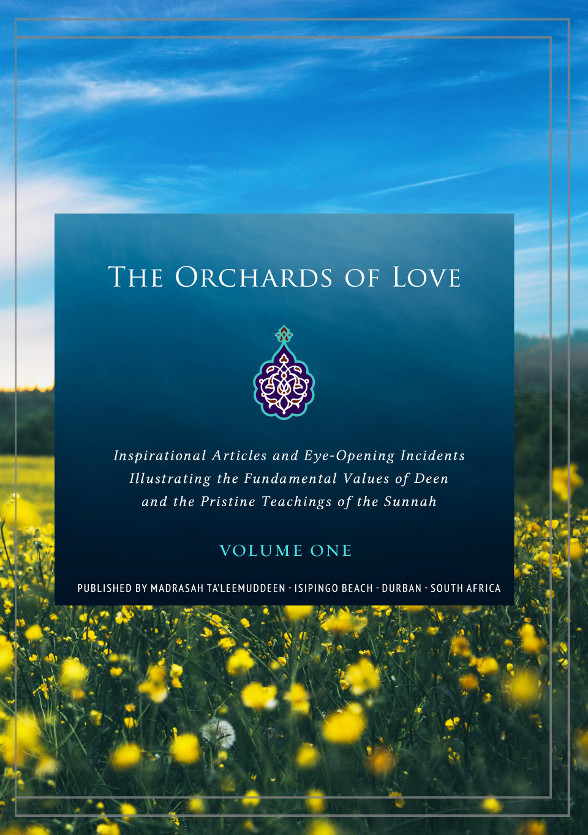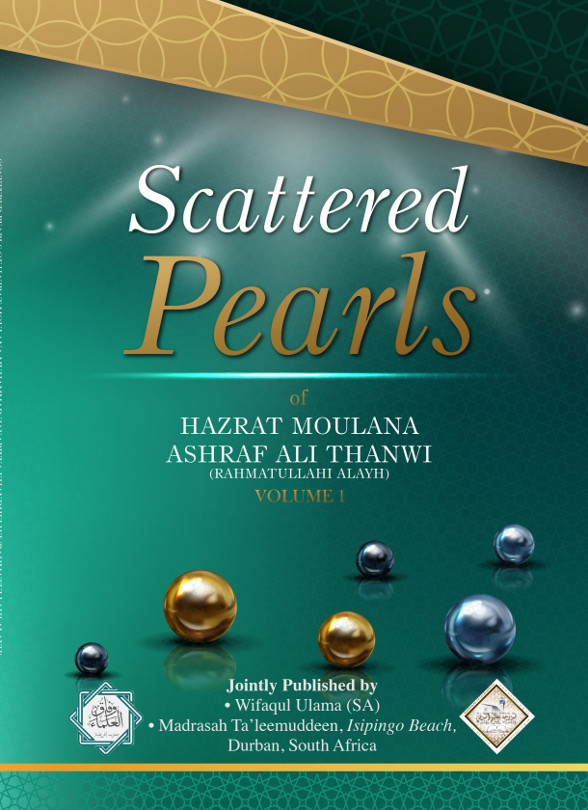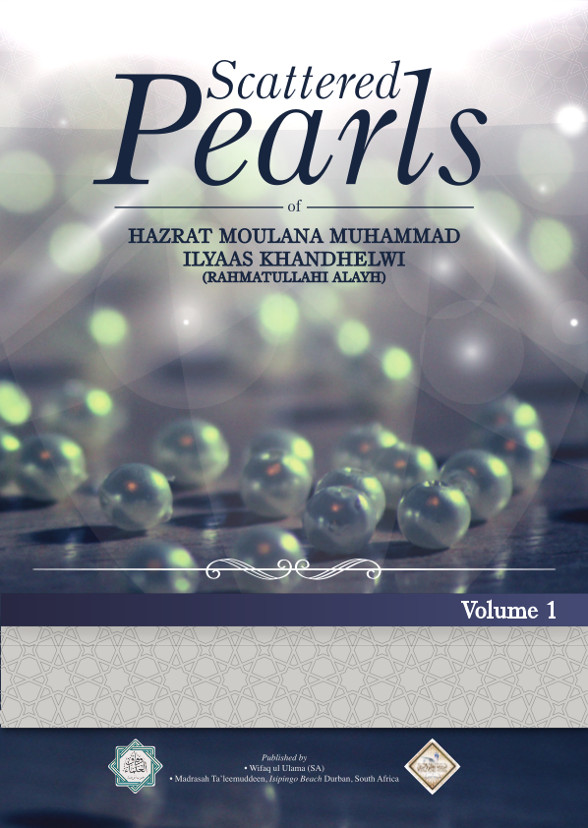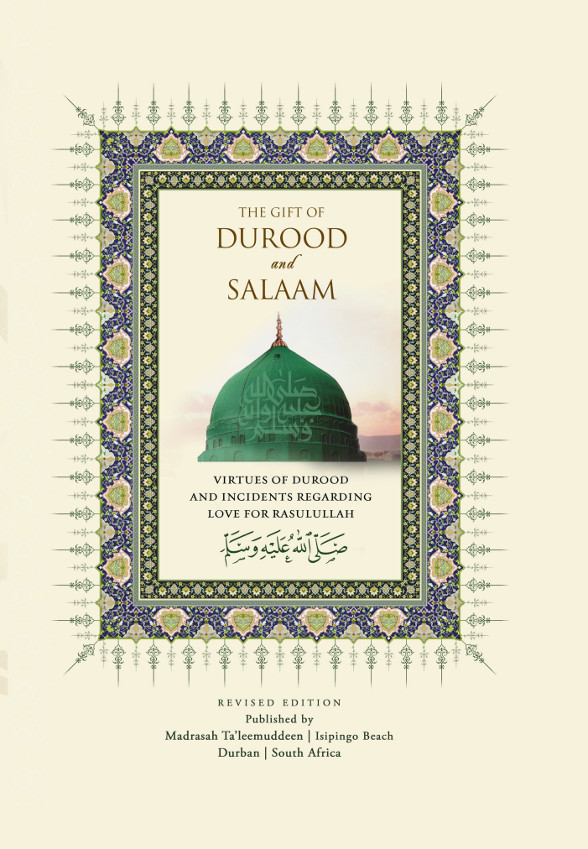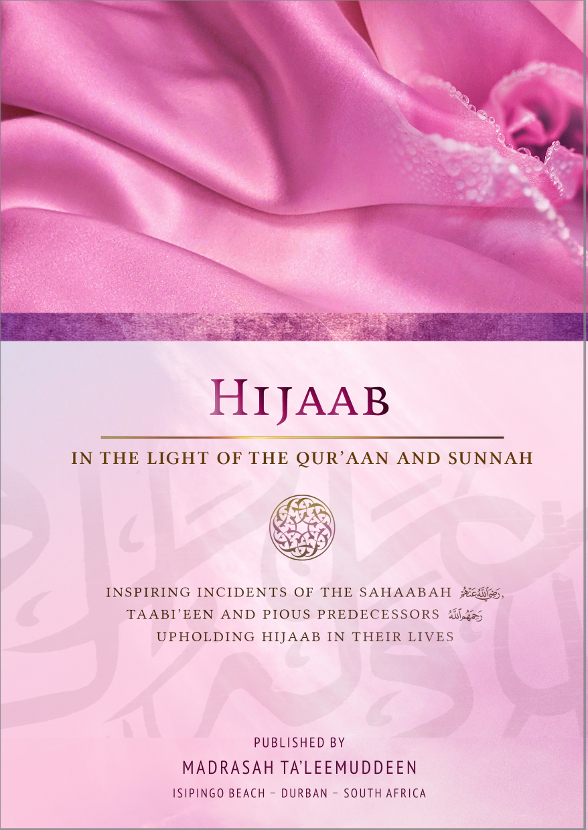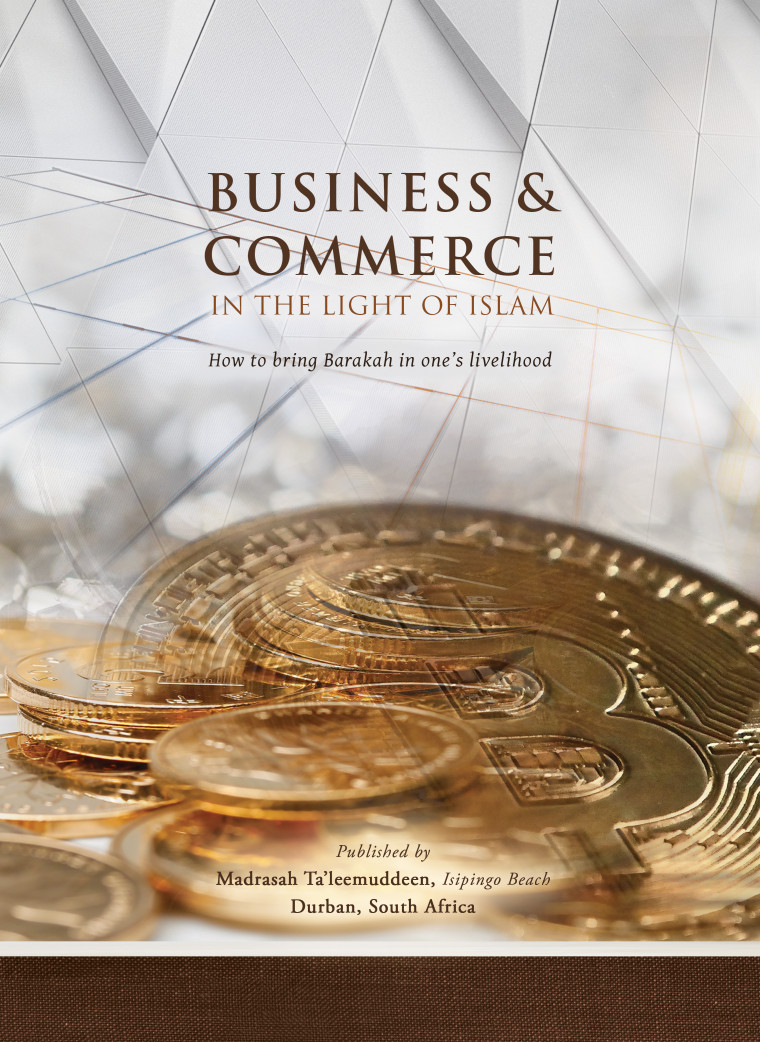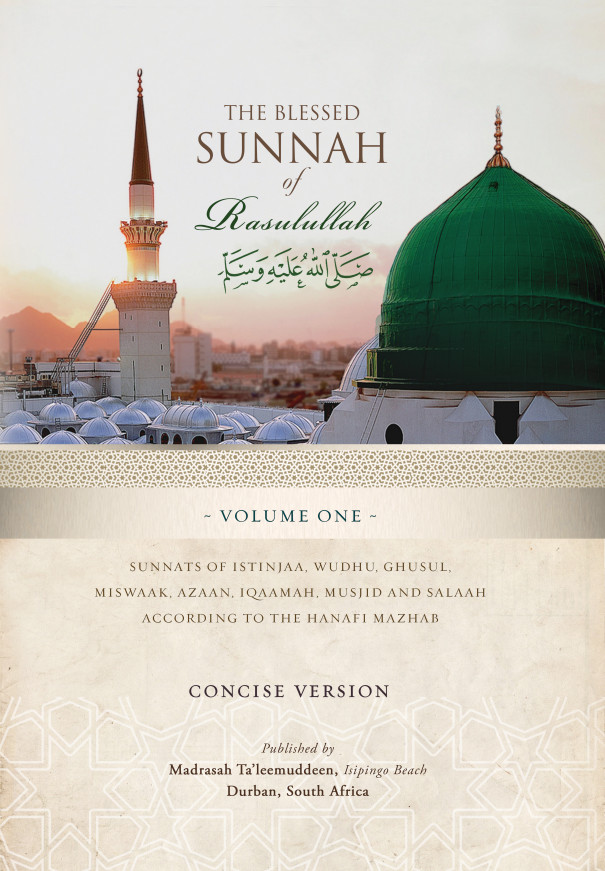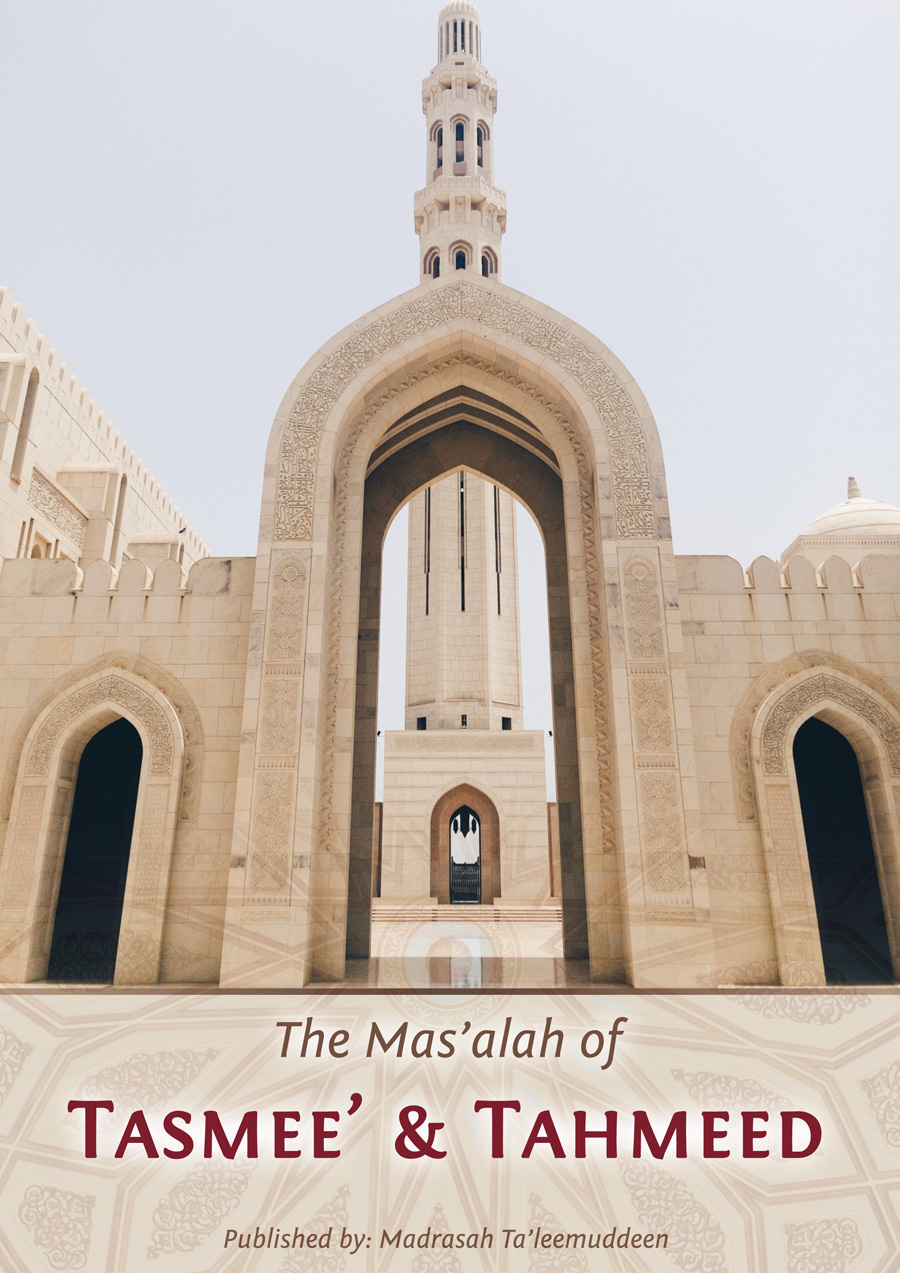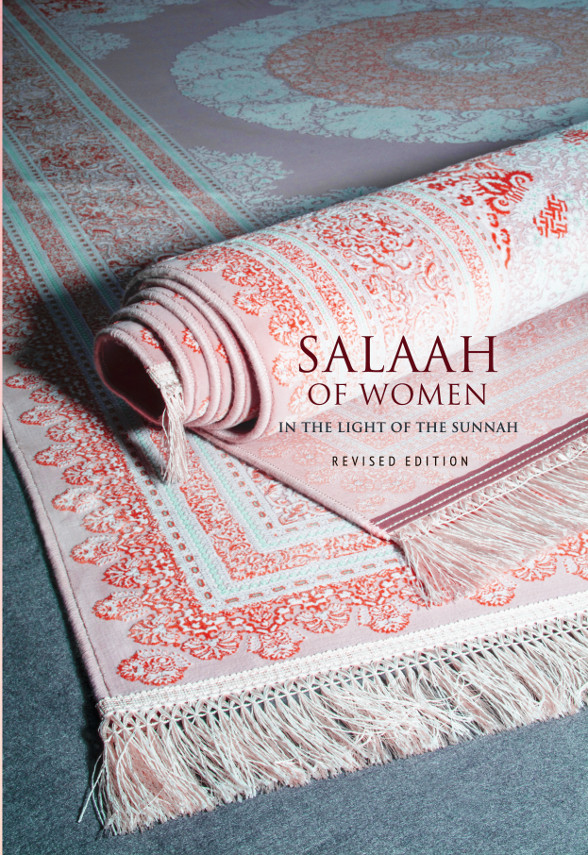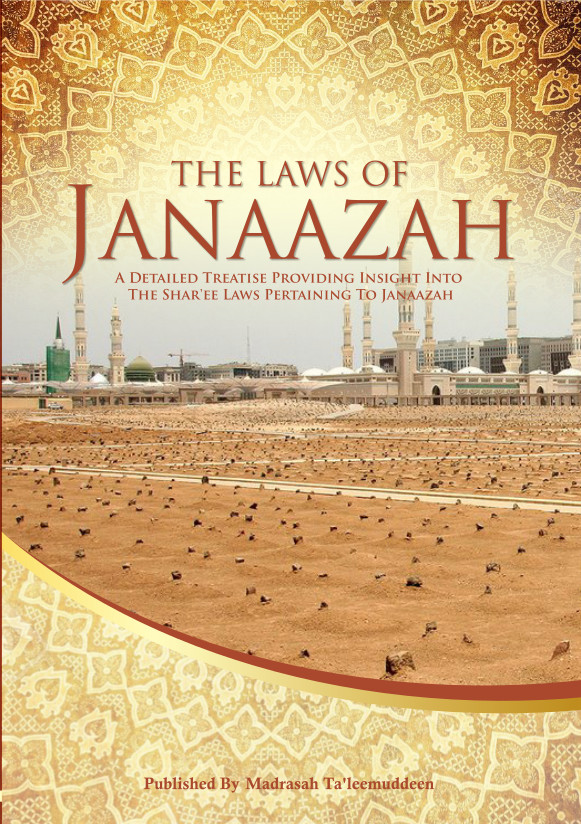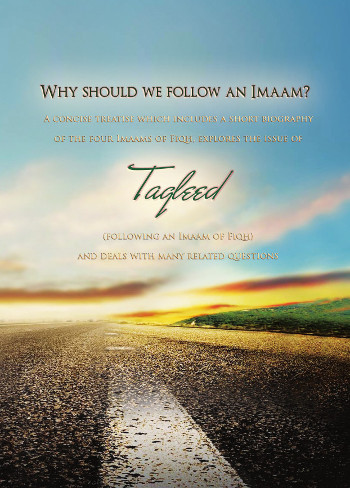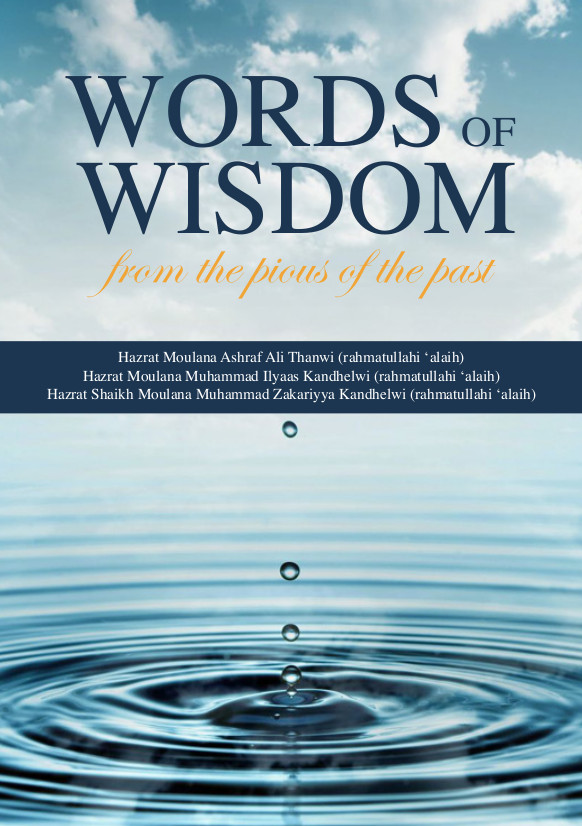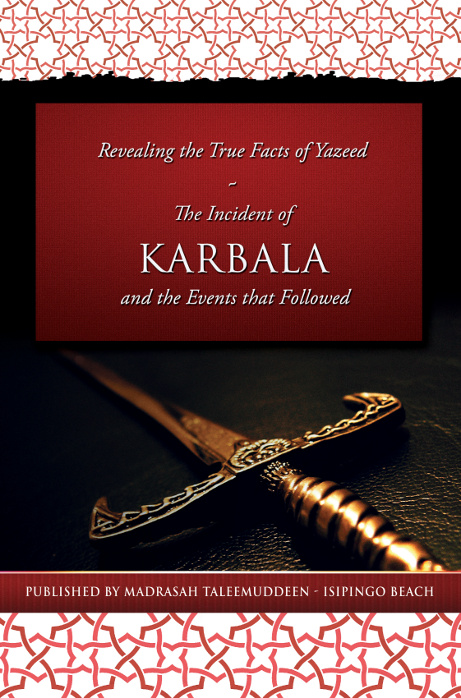Gender Equality
Q: Muslim women are told that they should not leave their homes in order to work and that they are not allowed to interact freely with the opposite gender. Likewise, they are told that they should be obedient to their husbands. Does Islam not afford men and women equal rights, or are men superior to women in Islam?

A: Before discussing the issue in question, it is necessary to refresh some fundamental beliefs and facts which are extremely important to understand the Islamic perspective. The following are among our fundamental beliefs:
- Allah Ta’ala is our Creator and Sustainer. We belong to Him alone and to Him we shall return.
- Allah Ta’ala, being our Creator and Master, has the right to command us as He wills, and we, being His creation and slaves, have the duty to obey His command. A slave does not have the right to question the authority of his Master. Rather, he will have to obey the Master’s command at all times and under all circumstances.
- Allah Ta’ala is most loving and compassionate towards His servants. Every command of His is full of justice and wisdom, and is for the betterment of humanity at large.
- A Believer accepts every word of the Qur’aan Majeed as the Divine word of Allah Ta’ala and wholeheartedly submits to every command of the Qur’aan Majeed, whether his puny logic can fathom the wisdom of the command or not.
After having understood these fundamental beliefs of Islam, the question then is, “What is the position of women in Islam, and what are the commands of Allah Ta’ala and His Rasul (sallallahu ‘alaihi wasallam) which are directed towards women?” In order to understand the position which Islam has afforded to women, it is imperative to first reflect over the position of women before the advent of Islam.
The Position of Women before the Advent of Islam
The advent of Islam occurred at a time when the world was engulfed in sin and was steeped in the lowest ebb of darkness. This era was regarded as the darkest age in the history of mankind. Cheating, robbing, killing, gambling, usurping the rights of orphans and widows and even burying female infants alive was the order of the day.
Women were degraded to such an extent that the European countries did not even accept women to be human beings! Women had no place in religion and were considered unfit for engaging in worship. In some councils of Rome, it was decided, after much discussion, that a woman is a dirty animal. Among the Arabs, it was considered permissible for a father to kill or even bury his daughter alive. In fact, this heinous crime was deemed to be a mark of honour and a standard of nobility. There were some who held the opinion that a woman’s life had no value. Hence, if a person killed a woman, he did not have to pay blood-money or be charged with retaliatory action. As far as the Hindus were concerned, when the husband died, his wife too was burnt alive with his dead body. In the year 586 AC, France showed its ‘compassion’ for women by passing a resolution – after great deliberation and controversy – that a woman is actually a human being, but she has been created for the sole purpose of serving man!
In essence, immorality and indecency had reached its pinnacle, where women had no social recognition and were openly ill-treated and physically abused. It was in this age of ignorance and oppression that Rasulullah (sallallahu ‘alaihi wasallam) – may our lives be sacrificed for him – was sent to rescue mankind from the darkness of kufr and usher them into the light of Imaan.
The Position of Women after the Advent of Islam
Rasulullah (sallallahu ‘alaihi wasallam) strove to rescue the Arabs from the wrong practices they were immersed in and instil within them the true values of Islam. The light of Islam began to spread until the golden era eventually dawned upon the world, where the nation that was once accustomed to physically and emotionally ill-treating their women became the greatest benefactors of mankind and the greatest protectors of women’s rights the world had ever seen! The men of such a nation, who at one time would deprive their women of all rights and degrade them to being inherited among the belongings of the deceased, were now upholding the honour of their women and fulfilling their rights. They now treated their women with the greatest compassion and mercy and safeguarded them against every type of worldly and Deeni harm. All this was purely on account of them upholding the Mubaarak Sunnah of Rasulullah (sallallahu ‘alaihi wasallam) and the teachings of Islam in their lives.
What are the Teachings of Islam in regard to Upholding the Rights of Women?
Islam has conferred the greatest respect and honour to women. In the Qur’aan Majeed, Allah Ta’ala has commanded that the rights of women be upheld, and at no point should any form of abuse and ill-treatment be shown to them. Allah Ta’ala declares,
وَعَاشِرُوْهُنَّ بِالْمَعْرُوْفِ
“Deal with them (your wives) in a good manner (with respect and dignity) (Surah Nisaa, verse 19)
Similarly, in the Hadith, Rasulullah (sallallahu ‘alaihi wasallam) has mentioned,
خيركم خيركم لأهله وأنا خيركم لأهلي
“The best among you are those who treat their wives kindly, and I am the best of you in treating my wives with kindness.” (Tirmizi #3895)
While addressing the Sahaabah (radhiyallahu ‘anhum) on the occasion of the farewell Hajj, Rasulullah (sallallahu ‘alaihi wasallam) emphasized the importance of fulfilling the rights of women in the following words, “Fear Allah Ta’ala regarding women, for you have taken them (into your nikaah) with the trust of Allah Ta’ala (i.e. they are an amaanah from Allah Ta’ala).” Rasulullah (sallallahu ‘alaihi wasallam) also said, “As for the rights that you owe to your wives, then Allah Ta’ala has commanded that you treat them well in providing clothing and sustenance for them.” (Muslim #1218 ; Tirmizi #1163)
Islam has advocated kindness and compassion towards women at every juncture. Hence, Rasulullah (sallallahu ‘alaihi wasallam) taught the ummah that to spend on one’s wife and to keep her happy is actually an act of ibaadah (worship). Even at the time of divorce, when the couple find themselves incompatible or cannot reconcile their differences and wish to separate, Islam commands the husband to separate with dignity and respect, and not to oppress her in any way.
On one occasion, a group of women came to the home of Rasulullah (sallallahu ‘alaihi wasallam) and complained of their husbands ill-treating them. Rasulullah (sallallahu ‘alaihi wasallam) was greatly disturbed and strongly condemned the ill-conduct of those husbands. Rasulullah (sallallahu ‘alaihi wasallam) said, “Such people are not the good among you.” (Abu Dawood #2146)
From this Hadith, we understand that Rasulullah (sallallahu ‘alaihi wasallam) prohibited showing ill-conduct and abuse towards women and explained to the ummah that such people are not good and obedient servants of Allah Ta’ala. In essence, there is no religion that had bestowed such kindness, compassion and honour to women like the kindness, compassion and honour afforded to them by Islam.
The Islamic Position of Men and Women in regard to Worldly Administration
For any administration to function smoothly and efficiently, there are two requirements: The first is to identify the different positions in the administration, and the second is for each person to fulfil his/her role in the administration. Consider the example of a government, business, company, hospital or school. In all these organizations, there will be a head and those who will be under the head. If all work together, with respect, cooperation and fulfilling their appointed roles, then each organization will function harmoniously and will be productive and progressive.
Similar is the case of the family unit. Allah Ta’ala has set roles for husbands and wives, and Allah Ta’ala has commanded that the husbands will be the head of the family unit in guiding them, protecting them, providing for them and fulfilling their needs. Hence, Rasulullah (sallallahu ‘alaihi wasallam) instructed Hazrat Faatimah (radhiyallahu ‘anha) (at the time of her nikaah with Hazrat Ali (radhiyallahu ‘anhu)) to fulfil the responsibilities within the home, while instructing Hazrat Ali (radhiyallahu ‘anhu) to fulfil the responsibilities out of the home. (Musannaf Ibni Abi Shaibah #29677)
If one understands Deen correctly, without bias and prejudice, one will realise that Islam has not degraded women, but has given them a role which allows them to live a life of honour within the comfort of their homes, concealed from the gazes of strange men, like a priceless pearl concealed in an oyster.
The honour which Allah Ta’ala has afforded women can be gauged from the fact that Allah Ta’ala has burdened the husband with the additional responsibility of venturing out of the home to earn a halaal livelihood in order to fulfil the needs of his wife and children. Allah Ta’ala says:
اَلرِّجَالُ قَوّٰمُوْنَ عَلَی النِّسَاءِ بِمَا فَضَّلَ اللّٰهُ بَعْضَهُمْ عَلٰی بَعْضٍ
“Men have been appointed as protectors over their women on account of the fact that Allah Ta’ala has granted some of them (men) superiority over others (women).” (Surah Nisaa, verse 34)
In another verse of the Qur’aan Majeed, Allah Ta’ala says:
وَلِلرِّجَالِ عَلَیْهِنَّ دَرَجَةٌ
“Men have been granted a level of superiority over them (women).” (Surah Baqarah, verse 228)
From these two verses of the Qur’aan Majeed, one clearly understands that the superiority and position which men have been granted over women was in actual fact a grace and blessing for women from the side of Allah Ta’ala, as they are provided for and protected by their menfolk. These verses in no way indicate towards women being underprivileged or degraded in the world.
Islam has made Provisions for Women under All Circumstances
Islam has made provisions for the needs of women to be fulfilled under all circumstances. Prior to nikaah, it is the responsibility of the father to take care of his daughter. After nikaah, it is the responsibility of the husband to take care of his wife. In the event of the husband’s demise or separation, Shari’ah commands that the needs of the women be taken care of by their close family members (e.g. the father, brother, uncle, etc. according to the various situations).
In essence, the verses of the Qur’aan Majeed which explain that men have been granted a level of superiority over women refer to the responsibility men have been assigned with in regard to protecting women, fending for them and fulfilling the obligation which they owe towards them. However, one should bear in mind that these differences in rank among men and women are only decreed by Allah Ta’ala for the purpose of fulfilling their divinely appointed roles in the world. It does not mean that all men are superior to all women in the sight of Allah Ta’ala and in the Hereafter.
The Basis of Superiority between Men and Women in the Sight of Allah Ta’ala
As far as the true position of men and women in the sight of Allah Ta’ala is concerned, then the basis of superiority is piety, righteousness and taqwa. In the Qur’aan Majeed, Allah Ta’ala declares:
اِنَّ اَكْرَمَکُمْ عِنْدَ اللّٰهِ اَتْقٰکُمْ
“Indeed the most honoured of you in the sight of Allah Ta’ala is the one who has the most taqwa (righteousness in his life).” (Surah Hujuraat, verse 13)
The purpose of coming into this world is to strive for the Hereafter. Thus, when striving for the Hereafter is the common goal, then women are in no way at a disadvantage, but have been given an equal opportunity to excel and progress, on condition that they fulfil the role which Allah Ta’ala has chosen for them. Furthermore, when the basis of superiority in the sight of Allah Ta’ala is piety and righteousness, it is clear that women can make great strides and even surpass men in rank and in acquiring the proximity of Allah Ta’ala – provided they adhere to the commands of Allah Ta’ala.
The Great Opportunities Offered to Women in Islam
Allah Ta’ala has blessed the women of this ummah with great opportunities to reach Allah Ta’ala and acquire the lofty ranks of the Hereafter. However, this is on condition that they fulfil the command of Allah Ta’ala and His Rasul (sallallahu ‘alaihi wasallam). Allah Ta’ala commands women in the Qur’aan Majeed,
وَقَرْنَ فِیْ بُیُوْتِکُنَّ وَلَا تَبَرَّجْنَ تَبَرُّجَ الْجَاهِلِیَّةِ الْاُوْلٰی
“O women! Remain within your homes and do not come out of your homes making a display of your beauty like the former days of ignorance.” (Surah Ahzaab, verse 33)
The Best for Women
On one occasion, Hazrat Ali (radhiyallahu ‘anhu) was seated by Rasulullah (sallallahu ‘alaihi wasallam) when Rasulullah (sallallahu ‘alaihi wasallam) asked, “What is best for a woman?” All the Sahaabah (radhiyallahu ‘anhum) remained silent and nobody answered. Hazrat Ali (radhiyallahu ‘anhu) said, “When I returned home, I informed Hazrat Faatimah (radhiyallahu ‘anha) regarding the question which Rasulullah (sallallahu ‘alaihi wasallam) posed before the Sahaabah (radhiyallahu ‘anhum), and asked her the same question, ‘What is best for a woman?’ In answer, she replied, ‘The best thing is that they do not see men and nor do men see them.’” Hazrat Ali (radhiyallahu ‘anhu) then said, “When I mentioned her answer to Rasulullah (sallallahu ‘alaihi wasallam), he became pleased and said, ‘Faatimah is part of me.’” (Kanzul Ummaal #46012)
Being Concealed from the Gazes of Strange Men & Performing Salaah in Her Home
Once Hazrat Ummu Humaid (radhiyallahu ‘anha), the wife of Hazrat Abu Humaid As-Saa’idi (radhiyallahu ‘anhu), came to Rasulullah (sallallahu ‘alaihi wasallam) and said, “O Rasulullah (sallallahu ‘alaihi wasallam), I long to perform Salaah behind you.” Rasulullah (sallallahu ‘alaihi wasallam) replied, “I am aware that you long and desire to perform Salaah behind me. However, your Salaah in the inner portion of your bedroom is more rewarding than your Salaah in your bedroom. The Salaah in your bedroom is more rewarding than the Salaah in any other part of your home. The Salaah in your home is more rewarding than the Salaah in the Musjid of your locality. The Salaah in the Musjid of your locality is more rewarding than your Salaah in my Musjid (Musjid-e-Nabawi).” Hazrat Ummu Humaid (radhiyallahu ‘anha) (in obedience and compliance with the mubaarak desire of Rasulullah (sallallahu ‘alaihi wasallam)) instructed that a small place be reserved for her Salaah in the innermost portion of her bedroom, and she would devotedly perform all her Salaah at that place until the end of her life. (Saheeh Ibni Hibbaan #2217)
Being Obedient to the Husband and Cooperating in Good
Hazrat Asmaa bint Yazeed Al-Ansaariyyah (radhiyallahu ‘anha), a Sahaabiyyah from the Banu Abdil Ash-hal clan, once came to Rasulullah (sallallahu ‘alaihi wasallam) while he was seated among the Sahaabah (radhiyallahu ‘anhum) and addressed him in the following words:
“May my father and mother be sacrificed for you! I have come to you as a representative of the women. May my life be sacrificed for you! Every single woman, in the east and west, whether she has heard that I have come to you or not, will have exactly the same question as myself. Verily Allah Ta’ala has sent you with the truth to men and women. We brought Imaan in you and in Allah Ta’ala who deputed you. We, the women, live within the confines of our homes and are restricted from exposing ourselves and doing many things that the men are able to fulfill. We remain confined to our homes. We allow you men to fulfil your needs and desires with us, and we bear your children. You, the men, have been favoured by Allah Ta’ala by being able to attend the Jumu‘ah Salaah and other Salaahs in congregation (whereas we women perform our salaah within our homes). You are able to visit the sick and be present at funerals. You perform Hajj after Hajj and even more virtuous than that is your participating in jihad in the path of Allah Ta’ala. When any of you men leave your home to perform Hajj or umrah or to guard the borders of the Islamic territories, it is none other than us women who protect your wealth for you. We sew your clothes for you. We raise and care for your children. Do we not have a share in your reward, O Rasul of Allah (sallallahu ‘alaihi wasallam)?”
On hearing the question of this woman, Nabi (sallallahu ‘alaihi wasallam) turned his face towards the Sahaabah (radhiyallahu ‘anhum) and asked, “Have you ever heard a woman ask a question regarding her Deen more excellent than the question of this woman?” The Sahaabah (radhiyallahu ‘anhum) replied, “O Rasul of Allah (sallallahu ‘alaihi wasallam)! We never imagined that a woman could be inspired to ask a question of this nature!”
Nabi (sallallahu ‘alaihi wasallam) turned to her and said, “Return, O woman, and inform all the women you represent that for you to display excellent conduct with your husband, seek to keep him happy and try your utmost to comply and cooperate with him will enable you to be equal with him in all the good deeds which you have mentioned that men carry out.”
Hazrat Asmaa (radhiyallahu ‘anha) was so delighted with the answer of Rasulullah (sallallahu ‘alaihi wasallam), that as she walked away, she continued to exclaim “Allahu Akbar!” and “La ilaaha illallah!” out of joy and excitement. (Shu‘abul Imaan #8369)
From the abovementioned incidents, we understand that there are many great opportunities which Rasulullah (sallallahu ‘alaihi wasallam) explained for the women of his ummah. However, they will only acquire progress and acceptance if they fulfil the role which Allah Ta’ala has chosen for them and they are pleased with the decree of Allah Ta’ala.
The Plot of the West
When one studies and understands Islam correctly, then the falsehood of kufr becomes absolutely clear. One realizes that the concept of gender equality promoted by the West is nothing but a fallacy. In the name of women’s liberation and gender equality, they have in actual fact enslaved women and robbed them entirely of all happiness.
They have used many stratagems to create a mindset of liberalism and freedom among the masses. Through the media, TV shows, movies, magazines, newspapers, social networks, billboards, the secular curriculums in schools and universities, etc., they have succeeded in shaping the mind of the common person and making the concept of gender equality appeal to his rationale.
The idealized picture which they create in the minds of the common person is that in order for a woman to be progressive, she has to stand up for her rights and show that she is equal to a man. If she leads an Islamic lifestyle, she will be tantamount to a slave living in bondage. Through her treading on the path of Islam and its teachings of purdah and motherhood, her personal progress will be totally limited and hindered. If she is concealed in her home, she will be deprived of making a meaningful contribution to her community and society. Therefore, the only way to ‘liberate’ her is to offer her the ‘gift’ of ‘freedom’- freedom from all restrictions and shackles.
Let us now look at the other side of the coin in order to discover the rot within the alien culture of the West and the reality behind gender equality.
The Reality of Women’s Liberation and Gender Equality
The West has dragged women out of their homes to earn a living in the name of liberation. In this way, they have deprived women of their Shar’ee right to remain in the home and be supported by their husbands. While a woman is working, she still has to bear her children and attend to them as a mother. As a result, she is shouldered with the double responsibility of generating an income as well as mothering her children and attending to the needs of her household. The husband becomes relaxed and expects the wife to also contribute towards the running expenses of the home – all in the name of gender equality. The poor woman is enslaved to the corporate environment and its demands, while she is forced to fulfil the role of a wife and a mother within the home.
In the workplace, she has to conduct herself as a professional, and even after hours, she has to see to her clientele and deal with work related issues, thereby making it difficult for her to give her children the attention that they need from their mother. As a result, the children grow up without motherly love, causing them to become delinquents in society.
While in the workplace, she is generally forced to compromise her Islamic dress and code of conduct to conform to the environment and appease her superiors. The environment of the workplace is an anti-Islamic environment where intermingling of men and women freely takes place and the laws of Shari’ah (in regard to purdah, etc.) are violated. Many women have to bow down to the dictates and orders of their employers in order to secure their material gain and interests. Reports of rape, sexual harassment and marital infidelity are on the increase on account of exposing women and taking them out to the workplace. The outcome of this is nothing but a recipe for the breakdown of the family unit.
The Unparalleled & Beautiful Culture of Islam
On the other hand, when one views the honour, respect and protection which Islam affords a woman within the confines of her home, then one realizes that the beautiful culture of Islam is unparalleled. After many Western women had studied Islam and personally witnessed the rot within the Western culture, and realized the humiliation and disgrace they were immersed in, they abandoned their life of humiliation and embraced the beauty of Islam. In regard to the beautiful Deen of Islam, Hazrat Umar (radhiyallahu ‘anhu) said:
إنا كنا أذل قوم فأعزنا الله بالإسلام فمهما نطلب العز بغير ما أعزنا الله به أذلنا الله
"We were the most disgraced of people. Allah Ta’ala then gave us honour through Islam. If we ever seek honour in something besides that through which Allah Ta’ala has honoured us (Islam), Allah Ta’ala will disgrace us." (Haakim #207)
And Allah Ta'ala knows best.
فاتقوا الله في النساء فإنكم أخذتموهن بأمان الله ... ولهن عليكم رزقهن وكسوتهن بالمعروف (صحيح مسلم، الرقم: 1218)
عن إياس بن عبد الله بن أبي ذباب قال قال رسول الله صلى الله عليه وسلم لا تضربوا إماء الله فجاء عمر إلى رسول الله صلى الله عليه وسلم فقال ذئرن النساء على أزواجهن فرخص في ضربهن فأطاف بآل رسول الله صلى الله عليه وسلم نساء كثير يشكون أزواجهن فقال النبي صلى الله عليه وسلم لقد طاف بآل محمد نساء كثير يشكون أزواجهن ليس أولئك بخياركم (سنن أبي داود، الرقم: 2146)
عن ضمرة بن حبيب قال قضى رسول الله صلى الله عليه وسلم على ابنته فاطمة بخدمة البيت وقضى على علي بما كان خارجا من البيت من الخدمة (مصنف ابن أبي شيبة، الرقم: 29677)
عن علي أنه كان عند النبي صلى الله عليه وسلم فقال أي شيء خير للمرأة فسكتوا قال فلما رجعت قلت لفاطمة أي شيء خير للنساء قالت لا يرين الرجال ولا يرونهن فذكرت ذلك للنبي صلى الله عليه وسلم فقال إنما فاطمة بضعة مني (البزار، حل وضعف) (كنز العمال، الرقم: 46012)
عن عبد الله بن سويد الأنصاري عن عمته أم حميد امرأة أبي حميد الساعدي أنها جاءت النبي صلى الله عليه وسلم فقالت يا رسول الله إني أحب الصلاة معك قال قد علمت أنك تحبين الصلاة معي وصلاتك في بيتك خير من صلاتك في حجرتك وصلاتك في حجرتك خير من صلاتك في دارك وصلاتك في دارك خير من صلاتك في مسجد قومك وصلاتك في مسجد قومك خير من صلاتك في مسجدي قال فأمرت فبني لها مسجد في أقصى شيء من بيتها وأظلمه وكانت تصلي فيه حتى لقيت الله جل وعل (صحيح ابن حبان، الرقم: 2217)
عن أسماء بنت يزيد الأنصارية من بني عبد الأشهل أنها أتت النبي صلى الله عليه وسلم وهو بين أصحابه فقالت بأبي أنت وأمي إني وافدة النساء إليك واعلم نفسي لك الفداء أما إنه ما من امرأة كائنة في شرق ولا غرب سمعت بمخرجي هذا أو لم تسمع إلا وهي على مثل رأيي إن الله بعثك بالحق إلى الرجال والنساء فآمنا بك وبإلاهك الذي أرسلك وإنا معشر النساء محصورات مقصورات قواعد بيوتكم ومقضى شهواتكم وحاملات أولادكم وإنكم معاشر الرجال فضلتم علينا بالجمعة والجماعات وعيادة المرضى وشهود الجنائز والحج بعد الحج وأفضل من ذلك الجهاد في سبيل الله وإن الرجل منكم إذا أخرج حاجا أو معتمرا ومرابطا حفظنا لكم أموالكم وغزلنا لكم أثوابا وربينا لكم أولادكم فما نشارككم في الأجر يا رسول الله قال فالتفت النبي صلى الله عليه وسلم إلى أصحابه بوجهه كله ثم قال هل سمعتم مقالة امرأة قط أحسن من مسألتها في أمر دينها من هذه فقالوا يا رسول الله ما ظننا أن امرأة تهتدي إلى مثل هذا فالتفت النبي صلى الله عليه وسلم إليها ثم قال لها انصرفي أيتها المرأة وأعلمي من خلفك من النساء أن حسن تبعل إحداكن لزوجها وطلبها مرضاته واتباعها موافقته تعدل ذلك كله قال فأدبرت المرأة وهي تهلل وتكبر استبشارا (شعب الإيمان، الرقم: 8369)
Answered by:
Checked & Approved:



